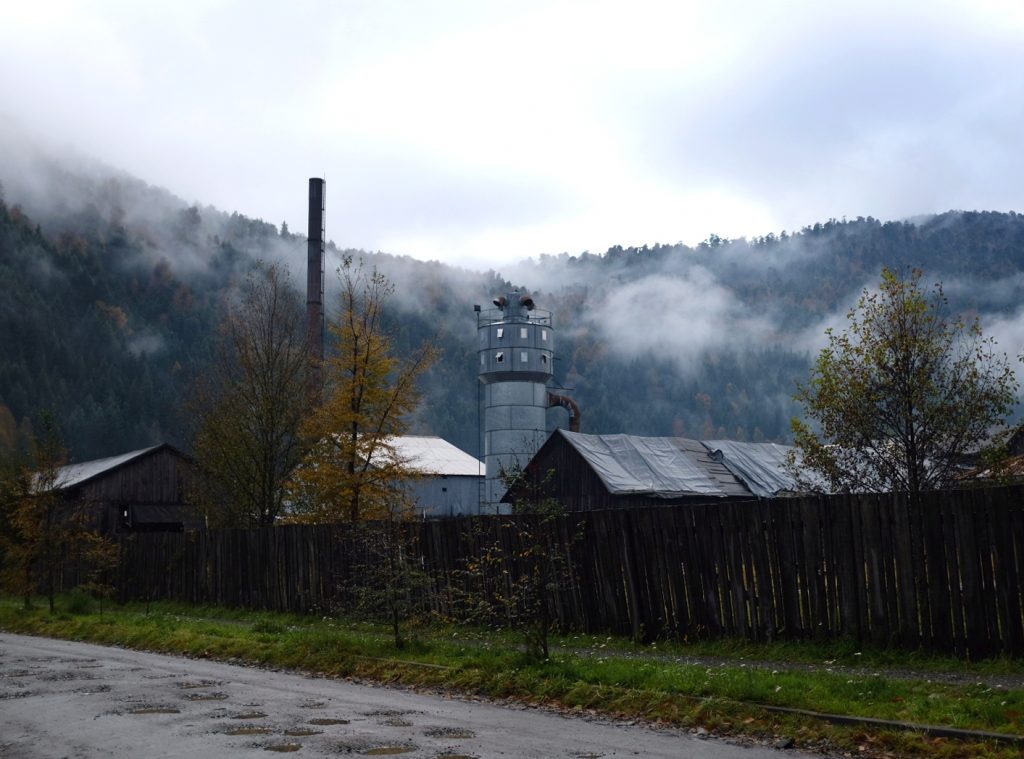
Neltume is a small town in the Panguipulli comune of southern Chile. Approximately three hours’ drive from the nearest airport, Temuco. Neltume’s population of ~2,000 people in ~400 homes finds itself a bit out of the way of major constructions and cities. The primary reason the region was colonized by non-indigenous people was to capitalize on the area’s dense forests of valuable trees.
The first forestry company in the region opened in 1898 with a timber factory for processing the wood, and first opened in 1942. The industry’s main operator in the region changed several times as it grew over the years, ending up in the possession of Victor Petermann and employing over 3,600 workers from Neltume and surrounding towns. The main— or only— industry for the town of Neltume prior to 2000 was forestry, and was the primary reason for the town’s founding and continued existence. However, after the founding of the Huilo Huilo Foundation and Biological Reserve in 1999, Neltume has gradually attempted to switch its main industry from forestry to ecotourism.

Similarly, in the United States, the coal mining industry inspired the creation of many small towns in West Virginia, especially in Boone County. These towns are steeped in coal dust, as coal mining provides the sole reason for existence and largest employer in the region. Everything within the town serves some purpose for the company which founded and sustains it: homes to house miners; company stores for general supplies and work equipment; restaurants to feed miners before, during, and after their shifts; clinics to treat miners and return them to the workforce post-haste. The decline of mining towns in this region is intimately linked to the decline of the area’s coal industry and output, as the townspeople are primarily employed by the mining companies.
As a part of our work here in Neltume, we’ve been interviewing various business owners about their establishments in order to construct websites for them that will increase exposure and create business, primarily tourism, in the town. Through this interview process, we’ve come into contact with a variety of people who used to be involved in the forestry industry who have since been trying to create businesses that will cater to tourists or those who purchase summer homes and are seasonal residents.
One example includes a man whose family runs a business that specializes in wooden door, window, and table production. His brother worked in the company processing plant for years and, during the high demand season of the summer months, several of his previous co-workers are temporarily contracted to help with orders. Another woman we interviewed, who now runs a restaurant and hostel, used to offer special “worker’s lunch” options and prices for all the men who would come to her establishment on their lunch break from the timber processing plant a few blocks over. The people of Neltume are attempting to branch out into a new industry while simultaneously repurposing previously learned skills or businesses into ones that can turn a profit from tourism— not a simple or easy feat.
While many of the West Virginia coal mining towns have begun to descend into abject poverty and abandonment after the vacuum created by the decline of the coal mining companies that sustained the region, Neltume has avoided such a fate. Primarily, this avoidance seems to be attributable to the creation of the large Nothofagus Hotel that has absorbed many of the displaced workers from the declining forestry business. Further, the Huilo Huilo Foundation and Biological Reserve has also protected and capitalized on the natural resources that the Neltume region has to offer, providing an additional motivation for tourists to come and visit the region. This system provides an additional revenue flow through Neltume that is not reflected in Boone County.
Overall, while the Neltume region of Chile shares many similarities with Boone County, West Virginia in regards to their history, the paths of each area have currently diverged. This being, primarily, due to the presence of and capitalization on natural resources in the Neltume region that have created another industry to fill the void which the forestry industry left behind as it declined. That being said, both regions are not as diverse in industry as other cities across Chile and the United States, which results in certain economic limitations and vulnerabilities visible throughout Neltume and Boone County. In time, perhaps Neltume will expand beyond the singular hotel and foundation that function as primary employers. Though, for the moment, the Neltume’s industry transition to seems to be going far better for its townsfolk than Boone County’s.
